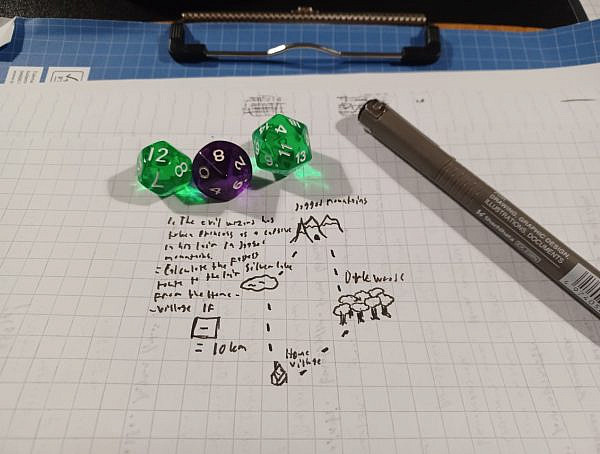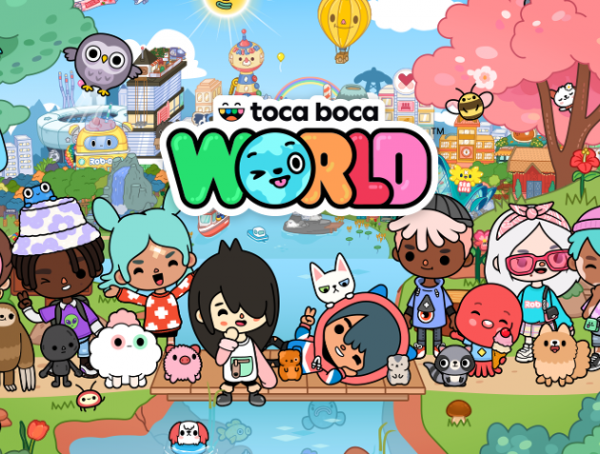Evan Torner’s article “Teaching German Literature Through Larp: A Proposition” is a thought-piece on marrying educational larps with the study of German literature. After all, language textbooks are full of different kinds of role-playing activities and both games in general and larps in particular have seen a bit of a trend in works inspired by literature, such as the College of Wizardry larp series inspired by J.K. Rowling’s novels. Nano-games, short larps designed to be played in less than an hour, could overcome several hurdles in teaching students about literature and its interpretation. The medium of larp invites emotional engagement with its subject and offers a motivation to analyse it in depth, neither of which can be taken as given in class.
Torner has previously separated his artistic pursuit as a larp writer from his work as a lecturer in German studies, but has now found that there is much to be gained by bringing the two together. He describes how, teaching a game studies course with some German majors, he assigned to them the task of writing edu-larps in the style of Golden Cobra, the #feminism anthology, and the 200 Word Game Challenge, based on German literature. He presents two of these games, Unrequited, based on J.W.G. Goethe’s Romantic classic The Sorrows of Young Werther, and Babble-On, based on the Turkish-German author Emine Sevgi Özdamar’s 1990 short story collection about language and identity, Mutterzunge (“Mother Tongue”). The games are meant to be played in German by language students, represent specific interpretations of the source texts, and conclude with a debrief and analysis session.
The rules of Unrequited are reproduced in their entirety:
One of three prompts for everyone.
Everyone stand up.
• Your name is Albert. Go up to someone who is standing by themselves. If they say a compliment ask them to marry you.
• Your name is Lote. Stay where you are, if someone comes to up to you give them a compliment. If they ask you to marry them say yes. Stay next to that person.
• Your name is Werther. Find a person who is engaged. Tell them you are madly in love with them and if they don’t love you back, you will have to eventually kill yourself. Stand next to them.
** The End – The game is over when everyone is in a group of three. If you are left out, you will either find someone or die alone.
The game is basically a sorting algorithm, but it also delivers the experience of a very cynical reading of the novel’s content, with the Werther players wandering aimlessly until couples form – which they do because the rules of the game or the expectations of society force them, not because they have a choice in the matter – and then ends up sulking and contemplating suicide nearby.
In Babble-On, the players divide themselves into at least four family groups of 3-5 members, structuring the group using a list of questions. Once the game begins and the people meet one another, the players can only use any noun once, keeping a list of exhausted words on a piece of paper. Then, the scene cuts to Camp Patois, where all the families intermingle and decide who they feel the most affinity for, losing their language in the process but also coining new vocabulary to facilitate communication. One of the stated effects is to lead the players to see their own situation as new language learners with that of immigrants and exiles from other language communities seeking to find ways to express their culture in a new language. The game does not reproduce the text of Mutterzunge but rather its themes and its emotional content.
These student-written games are merely an initial foray into what is supposed to be a larger movement to bring edu-larping into the field of German studies and to compile a book of suitable games. They can present the concept of adaptation and argument as valid uses for a game, and having the students’ initial exposure to a work be through a game that engages their emotions can also awaken actual interest in the work itself.
Original Article: http://ijrp.subcultures.nl/wp-content/uploads/2016/12/IJRP-6-Torner.pdf
Author: Evan Torner
Published in: International Journal of Role-Playing issue 6, December 2, 2016
You might also like
More from Game Research Highlights
How do you want to do this? – A look into the therapeutic uses of role-playing games
Can playing RPGs contribute positively to your wellbeing? A recent study aims to find out how RPGs are being used …
Eldritch horrors and tentacles – Defining what “Lovecraftian” is in games
H.P. Lovecrafts legacy lives today in the shared world of Cthulhu Mythos and its iconic monsters. Prema Arasu defines the …
Are Souls Games the Contemporary Myths?
Dom Ford’s Approaching FromSoftware’s Souls Games as Myth reveals the Souls series as a modern mythology where gods fall, desires …
















